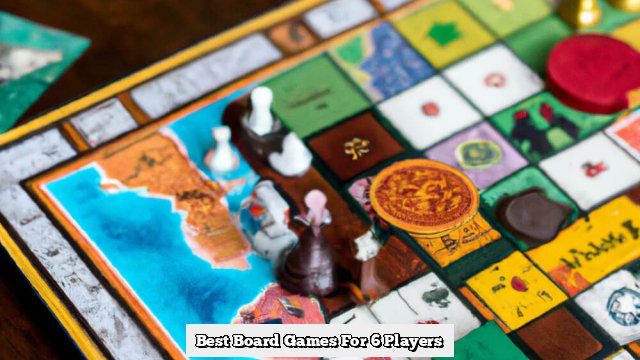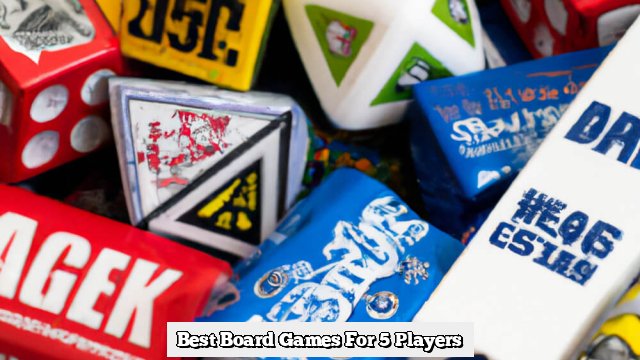Introduction to Board Games
Board games are a type of game that has been around since ancient times, usually involving dice and tokens. These board games use physical pieces, while modern board games may also include electronic components. Board games can be divided into several categories: abstract strategy games (such as chess and checkers), family or social interaction activities (like Monopoly, Scrabble and Clue), luck-based games (like Snakes & Ladders), war games with elements of both strategy/tactics and luck-based elements (such as Risk). There is also the category of educational board games (for teaching history or geography).
The number of players in a particular board game depends on the type, though typically two to four players is common for most types. Some modern board games can accommodate more than this number ” however, the maximum will typically depend upon how many pieces the game includes. There may be variations of a game in which rules are adjusted to accommodate larger groups of people playing at once. Examples include Cranium, Loaded Questions and Balderdash. More complex war or strategy-based board games often require two players, although variants may exist for three or more players. Generally in these cases each player controls part of a side or team, such as in Stratego or Diplomacy.
Review of Popular Two-Player Board Games
Board games have been the source of entertainment for centuries. From classic board-based games like Monopoly, to more modern editions featuring stimulating game mechanics such as Settlers of Catan or Wingspan, the variety of strategic two-player board games is enough to keep any recent gamers searching for ever-engaging options.
With two-player board games the experience is totally different than games that are built up with a bigger group; sitting across from an opponent and engaging in serious mindgames provides tons of possibilities for strategy and clever tactical play. Playing a competitive two-player game can lead to hours of fun as you employ different strategies to outsmart your opponent and be victorious!
There are lots of genres and styles when it comes to playing a two-person board game. For those who enjoy quick action, a game like Connect Four might be just what you’re looking for since it only takes a few minutes for each player to reach their objective. On the other hand, if you like more involved games, then there’s Twilight Imperium – four lengthy hours worth of empire building, space exploration and power plays! Strategy card games like Citadels and Hanabi ask both players to use their resources effectively while also forcing them to think on their feet as they strategize how best to move forward against one another. Other interesting two player board games include chess and checkers which rely heavily on cunning moves and careful planning in order to win.
Undeniably one great thing about two player board games is that they require less people so they’re perfect for those moments when most or all your friends are busy. Also because these types of board games allow you focus on just one or two opponents at a time, there’s much more opportunity for creating skillful strategies than if you’re playing with multiple foes since every move can be engaged tactically which someone who prefers deep gameplay would find prosperous. Finally, because these type of strategic two-player games have been around forever, there’s many more experienced players who have dedicated themselves deeply into mastering the tactics making the game even more enjoyable when facing off against an adept competitor than against relative newcomers who may still struggle in learning the ins and outs of advanced techniques.
Review of Popular Multi-Player Board Games
Whether you’re looking for a way to pass the time with a large group of friends, or just want an evening of family bonding, board games are a great option. With modern designs that can be played by up to six or more players with ease, there’s certainly no shortage of exciting options available.
From adventure games like Risk Legacy and Ticket To Ride, to wordy brain-teasers like Scrabble, there are dozens of entertaining strategies and tactics to enjoy. Party games such as Codenames and Loaded Questions keep everyone engaged while inducing plenty of laughs throughout the night. Whether you prefer complex progressions or speedy card games, traditional titles like Monopoly and Uno never get old either.
With such an abundance of enjoyable board games ” both new and classic ” it can be daunting to figure out which one is best for your group size. Our complete catalog measures each title based on how many players it can accommodate at once. With maximum player counts for dozens upon dozens of different titles available at your fingertips, you can quickly narrow your search down to only those that will fit your gathered players accurately. Allowing fewer people than what is suggested often slows down the gameplay significantly, so make sure the amount is spot-on before settling into a perfect game night!
Benefits of Playing Board Games With Multiple Players
Social Interaction: Board games are a great way to facilitate social interaction and foster meaningful connections with people. When played with multiple players, board games offer opportunities for dialogue, negotiation, collaboration and problem-solving. Everyone in the game has a unique set of skills, perspectives and contributions to make which helps everyone learn from each other and work together more productively. In addition to learning new skills, board games provide ample opportunity for laughter and fun which can help build strong relationships among players.
Cognitive Development: Board games often require players to use strategy and critical thinking to win the game or succeed at tasks within the game. Playing these types of games can help develop cognitive skills such as memory, focus, attention span, planning ahead, patience and even creative thinking. Through playing different styles of board games together people can strengthen their ability to reason and create solutions under pressure.
Stress Relief: Playing board games that involve strategy can often induce calmness in players as it distracts them from everyday worries or stressors. It also provides a fun way for people to connect without worrying about job pressures or other obligations outside of the game. Additionally, it helps build self-esteem by allowing individuals to challenge themselves while having fun at the same time.
Rules and Strategies For Playing Board Games With Multiple Players
1. Establish the Right Number of Players: Before choosing a game, it’s important to consider how many people will be participating. If there are too many or too few players, the game will quickly become monotonous and less enjoyable.
2. Have a Good Mix of Expert and Novice Players: It is beneficial to have some experienced players in the group as they can help newcomers to learn and understand the rules more quickly. At the same time, experienced players should anticipate having to explain certain concepts multiple times throughout the game.
3. Introduce Strategic Elements: Make sure all participants understand what strategy is needed for success in the game so that everyone involved can enjoy themselves as best possible. This could be anything from putting more emphasis on scoring high points for every turn, finding ways to work together as a team, or coming up with alternative tactics beyond what’s written in the rulebook.
4. Don’t Take Things Too Seriously: Board games are meant to be fun and lighthearted! You do not have to be competitive when playing board games with multiple people and instead creating an atmosphere that is relaxing and enjoyable should be one of your top focuses. Playing board games can also provide both entertainment and educational opportunities; explain why strategies work and how risk factors affect gameplay decisions along with conversation on post-game analysis.
DIY Board Games
Do you have a desire to get creative and make your own board game? DIY board games is a great way to get creative with friends or family. Depending on the complexity of the game, up to six people can play together. This can be a fun project for adults as well as children who are looking for something unique and interactive. When designing your own game, you can either come up with an idea from scratch, or modify existing popular board games by adding new themes and game elements. For example, if you are modifying a Monopoly themed board game, you can change the type of currency used or add custom pieces acquired through different challenges. The number of players will vary based on the complexity of the rules and each person’s familiarity with the game. While some games may only allow two people, others may require anywhere from three to six players for optimal gameplay.
Conclusion
Board games are a great way to spend quality time with family, friends and loved ones. Though not all board games require multiple players, many of the classic favorites from childhood involve at least two people in order to be played. Games like Monopoly, Risk, Clue and Stratego each feature different levels of strategy and skill as well as involving a certain number of players. Depending on the game chosen and its level of complexity, multiple players can add fun competition and cooperation to the playing experience.
In conclusion, when it comes to crafting shared experiences between family and friends, nothing beats the joy of gathering around a table for a rousing night of good old-fashioned board-game fun! With so many options available today, choosing one that is appropriate for the number of players at hand is key in helping ensure everyone has an enjoyable experience that they will remember fondly long after they’ve gone home. Whether it’s a classic from yesteryear or a more modern offering with higher levels of interaction and entertainment value, selecting an option that is sure to please all in attendance is likely going to be one game night you won’t forget! Gathering around a game board with your loved ones is not only filled with entertainment, but also provides precious memories that will last for years to come. It’s easy to see why board games continue to bring endless amounts of joy and happiness whenever you share them with those closest to you.

I love playing all kinds of games – from classics like Monopoly to modern favourites like Ticket to Ride.
I created this blog as a way to share my love of board games with others, and provide information on the latest releases and news in the industry.





